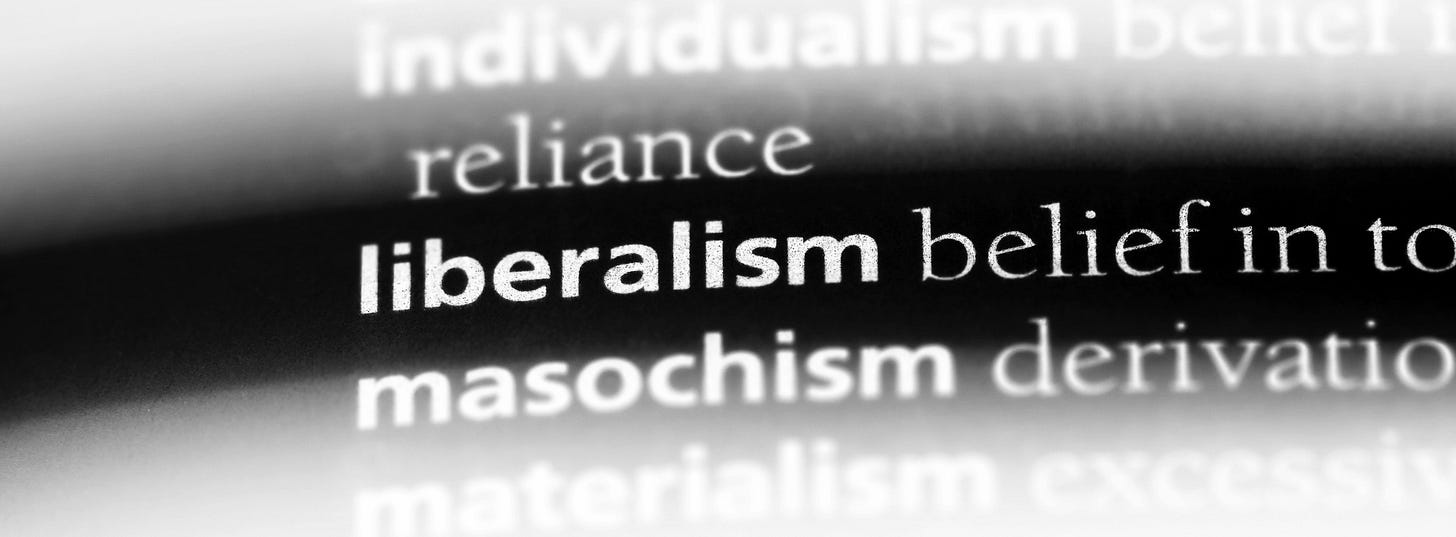E-Pluribus | February 2, 2023
Reconsidering the effects of police brutality videos, the need for gradualism in policy changes, and cultivating a liberalism that recognizes the complexity of life.
A round-up of the latest and best writing and musings on the rise of illiberalism in the public discourse:
Karen Attiah: The Endless Video Loop of Black Death Is Doing More Harm than Good
A strong supporter of the Black Lives Matter movement, Karen Attiah is no shrinking violet on matters of race. The most recent death of a black man at the hands of police, however, has Attiah thinking that the same police video that many activists called for to help hold police accountable has become its own problem.
[B]lack suffering has become an industrial complex of its own, snuff films as ritual entertainment. . .
[I]’m not saying publicly released videos don’t have value. They can, on occasion, result in legal consequences for individual officers and their departments. We can concede that the past several years of hashtags and videos have elevated Black and other scholars who have long argued for defunding and abolition, and have presented visions of alternative forms of policing.
But why must all this “good” come only after videos of Black people being killed by police have circulated on autoplay?
Little has changed systemically in the decade of #BLM. So how do we, in the media, continue justifying this normalization of Black death? How are the graphic deaths of Black people acceptable to consume? Especially when White death — yes, the police kill White people, too — gets nothing like this treatment?
I don’t have all the answers. But I can’t help feeling that these hellish loops only compound public desensitization to Black death — and are doing more harm than good.
Read the whole thing.
Greg Berman and Aubrey Fox: Three Cheers For Gradualism
Most who want change want it now, especially when it comes to matters of public policy that affect the lives of millions. Writing at Persuasion, Greg Berman and Aubrey Fox make the case that, as difficult as it is, gradualism is often the way to go when addressing serious issues, allowing time for attitudes, hearts and minds of people to change rather than have change forced upon them.
There are numerous advantages to gradual reform, in contrast to utopianism and comprehensive planning. Instead of pursuing broad, revolutionary change in a single master stroke, incrementalism focuses on addressing concrete problems in a piecemeal fashion. Following the scientific method, incremental reform allows for new ideas to be tested, evaluated, and honed over time.
Crucially, gradualists know how little they know. Anyone trying to understand a given problem these days is necessarily missing crucial information because there is simply too much information to process effectively. Gradualists acknowledge that, inevitably, errors happen. Building on this insight, an iterative, incremental process allows for each successive generation of reformers to learn from, and improve upon, their predecessors’ efforts.
Critics of incrementalism often argue that it is timid or slow or a de facto endorsement of the status quo. But experience indicates that small changes, compounded over time, can add up to something significant.
[ . . . ]
While some gradual improvements, like Social Security, take decades, incrementalism is also, paradoxically, capable of delivering quick results. According to Daniel Herriges of the nonprofit Strong Towns: “Incrementalism entails a bias toward quick action over exhaustive planning: you take the next, easiest action to address the immediate situation you’re facing, and you take it right now. You don’t wait to have the whole road map to your policy goal laid out for you.”
Moreover, incrementalism has the virtue of being democratic. The goal of incremental change is typically to encourage experimentation, to let a thousand flowers bloom, rather than insisting that there is only one true path to change and attempting to exercise centralized control of its implementation.
Read it all here.
Ben Klutsey and Joshua Cherniss: Cultivating an Ethos of Tempered Liberalism
In his ongoing series of conversations on liberalism, Ben Klutsey, director of the Program on Pluralism and Civil Exchange at the Mercatus Center at George Mason University, talks with associate professor of government at Georgetown University professor Joshua Cherniss about “tempered” liberalism. As in the above essay on gradualism, Cherniss says tempered liberalism recognizes the complexity and interconnectedness of the many aspects of liberalism that take time, patience, debate and persuasion to communicate and inculcate into a sometimes skeptical and jaded public.
In talking about the tempered liberal ethos, it is a matter of certain dispositions such as modesty, skepticism of the claims of any ideology or theory, openness to evidence, openness to different perspectives, a certain kind of (what I call) ethical moderation, linked to a pluralistic outlook, which says that there are many valid and important goods and many moral obligations that we face that don’t all align perfectly or fit together, and no one of which is always paramount. Navigating our moral choices is a matter of trying to be open to, aware of and responsive to these different moral considerations and try for some balance between them, rather than single-mindedly pursuing only one over others.
It’s also marked by a certain fortitude in accepting that political life, and human life generally, is going to involve a lot of loss, defeat, imperfection, uncertainty, and that we need to have the courage and the strength to live with reversal and defeat and uncertainty and imperfection and dissatisfaction. That we need to also exercise a certain amount of forbearance in our action, that we should restrain our tendency to want to get everything or control everything, or completely win or completely convince our opponents. That there should be some self-restraint in both our actions and indeed our expectations or desires. That we should not seek, and we should even not want, complete dominance or complete fulfillment, certainly in political life.
Also a sense of political commitment and responsibility, the sense that what happens politically is important, and that it does concern us, and that we should be engaged, we should care about politics, and we should be invested in it in some way. It believes in or encourages a certain degree of self-restraint, and not investing too much in politics, not treating politics as a be-all and end-all, but it’s also resistant to quietism or withdrawal in politics. It does take politics, political questions very seriously and feels some sense of personal investment and/or responsibility for participating in politics.
Read it all.
Around Twitter
One would have thought the name “Elimination of Harmful Language Initiative” would have been enough to disqualify it, but apparently not. Professor Russell Berman joined with the Foundation for Individual Rights and Expression to explain why it was a bad idea:
Twitter under Elon Musk has already shown a willingness to bow to pressure when it comes to freedom of expression, and now India has gotten into the act. Via Persuasion:
And finally, in case you missed it, Thomas Chatterton Williams says 2020 was for the birds (OK, it was actually 2021):










